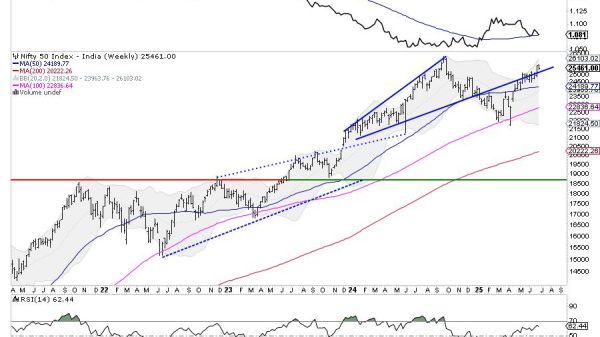The Impact of Weak Chinese Growth on Asian Currencies
Most Asian currencies faced a setback on Wednesday, with the dollar reaching a one-month high. This surge in the dollar’s strength was driven by growing scepticism regarding early interest rate cuts by the Federal Reserve. Simultaneously, concerns loomed over China’s economic performance, amplifying the pressure on Asian currencies.
Chinese Economy Falters in Q4, Casting Shadows on Regional Currencies
China’s fourth-quarter GDP figures disappointed, falling slightly below expectations. With growth barely surpassing the government’s estimated 5% for 2023, the data hinted at a sluggish post-COVID recovery, setting a lacklustre tone for China in 2024. The yuan experienced a 0.1% dip, mitigated by a stronger-than-expected daily midpoint fix by the People’s Bank of China. However, other economic indicators for December painted a bleak picture, with weak retail sales and an unexpected rise in unemployment.
The repercussions extended beyond China, affecting currencies tied to its trade. The Australian dollar and the South Korean won both faced declines, reflecting the market’s concern over China’s economic trajectory. Additionally, the Singapore dollar retreated by 0.2%, driven by data revealing that the country’s non-oil exports contracted more than anticipated due to weakened Chinese demand.
Doubts over Early Fed Rate Cuts Further Weigh on Asian Currencies
While China’s economic woes played a significant role, doubts surrounding early interest rate cuts by the Federal Reserve intensified the pressure on Asian currencies. Governor Christopher Waller’s somewhat hawkish comments on Tuesday triggered concerns, causing the Japanese yen to bear the brunt. The yen saw a 0.1% drop on Wednesday, following a significant 1% tumble in overnight trade. Moreover, the yen breached the 147 level for the first time in over a month.
Waller’s comments not only impacted the yen but also cast shadows on the broader Asian currency landscape. The anticipation of the Bank of Japan maintaining its ultra-dovish stance in the upcoming meeting further fueled the yen’s depreciation. The recent devastating earthquake and expectations of a moderate inflation reading added uncertainty, compounding the challenges for the Japanese currency.
Navigating the Challenges: Singapore Currency and the Road Ahead
Amidst these challenges, the Singapore currency faced its own hurdles, declining by 0.2%. The weak performance was underscored by data indicating a more substantial contraction in non-oil exports than initially predicted. This contraction, attributed to subdued Chinese demand, underscores the interconnectedness of Asian currencies and the impact of regional economic dynamics.
Charting a Course Amidst Uncertainty in Asian Currencies
The retreat of most Asian currencies against the backdrop of weak Chinese growth and doubts over early Fed rate cuts highlights the delicate balance these currencies navigate. The Singapore currency and others face multifaceted challenges, from economic slowdowns to global monetary policy uncertainties. As these currencies tread carefully in 2024, market participants will keenly watch how they weather the storms and capitalise on opportunities in an ever-evolving financial landscape. The resilience of Asian currencies will undoubtedly play a pivotal role in shaping the economic narrative in the months to come.
The post The Impact of Weak Chinese Growth on Asian Currencies appeared first on FinanceBrokerage.






















